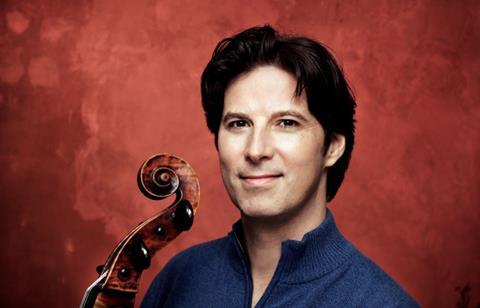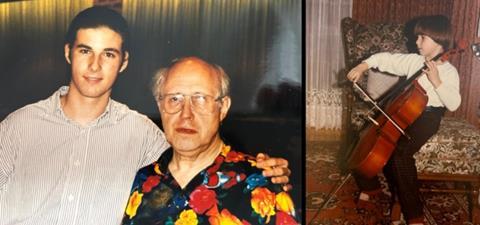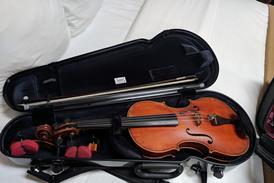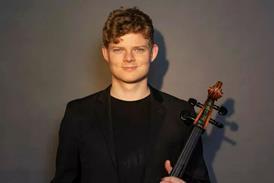The German cellist reminisces on his soloistic journey and finding purpose

Discover more Featured Stories like this in The Strad Playing Hub.
Read more premium content for subscribers here
Chamber music was what really drew me into playing the cello. For me, as for every child, sitting in a practice room all by yourself can be a nightmare! I didn’t really enjoy it before I could start playing with friends at music school. And although it took a few years, once I started performing concerts I enjoyed playing for others and sharing music. It felt very familiar because of my mother, who was a professional musician. I already knew what kind of atmosphere could be created by music.
A significant step in my solo playing was when I was accepted into the Munich Hochschule when I was 13. I studied with Walter Nothas, the principal of the Bavarian Radio Symphony Orchestra. Their performance of the Schumann Cello Concerto with Yo-Yo Ma had made me fall in love with the instrument.
But really the most important thing that accelerated my path into a solo career was winning first prize at the Young Tchaikovsky Competition at the age of 15. It was probably a good thing I was so young, because it just felt like a fun opportunity to see how the level was internationally. I remember being quite shocked when I saw the opening concert in Moscow, with all the incredibly well-trained musicians from Russian music schools. Luckily the cello competition was the last to happen, after violin and piano. So, for a week I locked myself in my hotel room and, apart from meals, did nothing but practise.
Being a musician is about focus, concentration and stillness
Among the great musical influences of my life were the lessons I received from Mstislav Rostropovich. The main thing that struck me was his direct link to composers. When I play Prokofiev, Britten or Shostakovich, I remember the stories he told me about his friendships with them. It gives an ‘aliveness’ to the music.
Other major influences include Anne-Sophie Mutter, Heinrich Schiff and Steven Isserlis, who helped me understand the life of a soloist. The industry can really be a bubble; you need to put things into perspective and balance your life, especially with so much travelling. Make sure you have time at home, with family, and realise what is really important.

We are living in a time with constant distractions, either from social media or from the news. But being a musician is about focus, concentration and stillness. Avoiding the noise and distraction of the outside world allows us to create our musical personality, which is especially important for young musicians.
All the wonderful composers understood the brevity of life. That’s why they wrote incredible works; they are messages to us. In our limited time, you have to say something important that has meaning for another person. Music is an amazing force in our lives, so you somehow need to get to the core of why you’re doing it and want to share it.
INTERVIEW BY RITA FERNANDES
Read: ‘I’m simply grateful each time I play it’ - Daniel Müller-Schott on the Elgar Cello Concerto
Discover more Featured Stories like this in The Strad Playing Hub.
Read more premium content for subscribers here
The number one source for playing and teaching books, guides, CDs, calendars and back issues of the magazine.
In The Best of Technique you’ll discover the top playing tips of the world’s leading string players and teachers. It’s packed full of exercises for students, plus examples from the standard repertoire to show you how to integrate the technique into your playing.
The Strad’s Masterclass series brings together the finest string players with some of the greatest string works ever written. Always one of our most popular sections, Masterclass has been an invaluable aid to aspiring soloists, chamber musicians and string teachers since the 1990s.
American collector David L. Fulton amassed one of the 20th century’s finest collections of stringed instruments. This year’s calendar pays tribute to some of these priceless treasures, including Yehudi Menuhin’s celebrated ‘Lord Wilton’ Guarneri, the Carlo Bergonzi once played by Fritz Kreisler, and four instruments by Antonio Stradivari.





































No comments yet